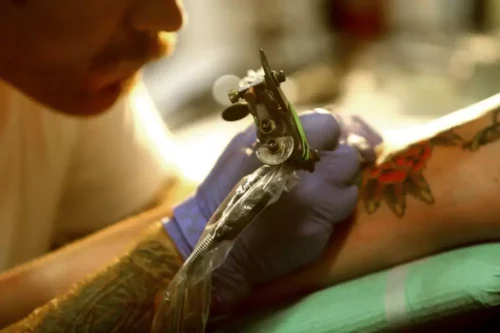
The link between alcohol and sugar cravings can be attributed to various factors, including the impact of alcohol on blood sugar levels and the body’s need for a substitute. Understanding these connections can inform strategies to manage sugar cravings in individuals with AUD. For instance, individuals in recovery might benefit from consuming balanced meals throughout the day to avoid spikes and crashes in blood sugar levels that could potentially trigger cravings. Furthermore, incorporating regular physical activity and cognitive-behavioral strategies can also help manage cravings and promote overall well-being. However, the effectiveness of this approach in reducing alcohol cravings or relapse risk is still a topic of debate. Overconsumption of sweet foods can potentiate dopamine release in a manner similar to alcohol, contributing to cravings for both substances.
Five Codeine Side Effects
While it might be a relief to crave something else after quitting alcohol, sugar cravings must also be managed. Eating a healthy diet and recognizing that sugar addiction is a potential risk of a successful recovery can help you avoid transferring your addiction from alcohol to sugar. Both alcohol and sugar throw a party for your brain’s reward system, but secretly they also have a tumultuous affair with your blood sugar levels.

How Does Rehab Help Drug Addicts?
- (However a mix of both is ideal!) Protein can keep you satisfied throughout the day and provides amino acids to help combat cravings.
- It is important to choose nutrient-dense foods that provide essential vitamins, minerals, and fiber.
- Studies show that alcoholism is at least partially hereditary, and this may also be true of sugar addiction.
- Unravel how alcoholism develops over time, its effects on health, and the importance of early intervention.
Unveil the long-term effects of alcohol on your health, from heart issues to mental health impacts. “The body is really miraculous in coming into a homeostatic state,” she said. “Eventually, people feel more cravings for healthier foods and have more energy.” Sugar cravings after quitting alcohol are quite common and occur for a number of reasons as explained above. Replacing alcohol and drug addictions with candy is a useful tool to include in your recovery toolbox. However, you have to make sure that you do not allow candy to become a new addiction.
How Does Alcoholism Develop Over Time?
The reward system in the brain plays a significant role in the relationship between alcohol and sugar cravings. Neurotransmitters, such as dopamine, serotonin, and endorphins, are involved in regulating the brain’s reward pathway. Alcohol consumption stimulates the release of dopamine, creating a rewarding sensation. Over time, the brain adapts to this increased dopamine release, leading to tolerance and the need for higher alcohol consumption to achieve the same pleasurable effect. Another factor contributing to sugar cravings in alcoholics is the addictive nature of both alcohol and sugar. Alcohol stimulates the release of dopamine, a neurotransmitter involved in the brain’s reward system.


Many individuals turn to alcohol as a coping mechanism for stress, anxiety, or other emotional difficulties. When alcohol is removed from their lives, they may seek comfort and solace in sugar as a substitute. This emotional connection, combined with the familiarity of using substances to cope, can contribute to the development of sugar cravings. By incorporating these healthy alternatives into the diet and seeking support, individuals can break the cycle of alcoholism and sugar cravings.
- Addressing the root causes of sugar cravings in recovering alcoholics through proper nutrition, hydration, and overall health is crucial.
- This suggests that overconsumption of sugar may trigger addiction-like responses in the brain, further fueling cravings for sugar.
- Additionally, make sure to include sources of protein and healthy fats in your meals to promote satiety and overall well-being.
- Individuals with alcohol use disorders may experience increased dopamine release due to the effects of alcohol on the brain’s reward system.
Explore self-injury awareness day, its significance, and resources for support and understanding. Discover if trazodone can be addictive, its impact on mental health, withdrawal symptoms, and more. Unveiling the dark truth about what type of drug is heroin and its devastating impact on health.

Factors such as family history, social environment, stress, and mental health issues can contribute to the development of alcohol addiction. Over time, regular alcohol consumption can lead to changes in brain chemistry, affecting reward pathways why do alcoholics crave sugar and increasing the risk of cravings. A significant concern for recovering alcoholics is the intensity of sugar cravings. ‘ Understanding these cravings and managing them effectively can be a significant part of the recovery journey.
- Drug rehab programs vary in length, from short-term options of a few weeks to long-term residential programs lasting up to a year, offering tailored care to address individual needs.
- Alcoholism, also known as alcohol use disorder (AUD), is a chronic condition characterized by an inability to control or stop drinking despite negative consequences.
- These resources can help individuals navigate the challenges of recovery and develop strategies to overcome cravings.
- Discover types of holistic health practices, from TCM to WMHP, for a balanced approach to well-being.
We can help you along the path to a healthy, successful, and stable life.
- Uncover early signs of alcoholism in a loved one, understand its impact and learn how to seek help.
- The brain and body crave a sugar fix as a result of the tolerance built up to sugar from alcohol intake.
- This can become especially apparent when alcohol is removed from the equation.
- Explore “what is drug therapy?”, its various types, and how it’s transforming lives in the realm of healthcare.
- Interestingly, alcohol also impacts dopamine levels indirectly by inhibiting its reuptake, which is the process of dopamine reabsorption by the brain.
- Specifically, we will discuss the role of pre-treatment glucose levels and the impact of heavy drinking on these levels.
Understanding these phenomena is crucial to managing sugar cravings in alcohol recovery. Stress and anxiety are common experiences for many individuals, including alcoholics. These emotional states can amplify the desire for sugar, as it provides a temporary sense of comfort and relief. When stressed or anxious, the body releases stress hormones like cortisol, which can increase cravings for sugary foods. Alcoholics often experience fluctuations in their blood sugar levels due to the effects of alcohol on the body.

 (770) 424-3393
(770) 424-3393 Atlanta, GA
Atlanta, GA 